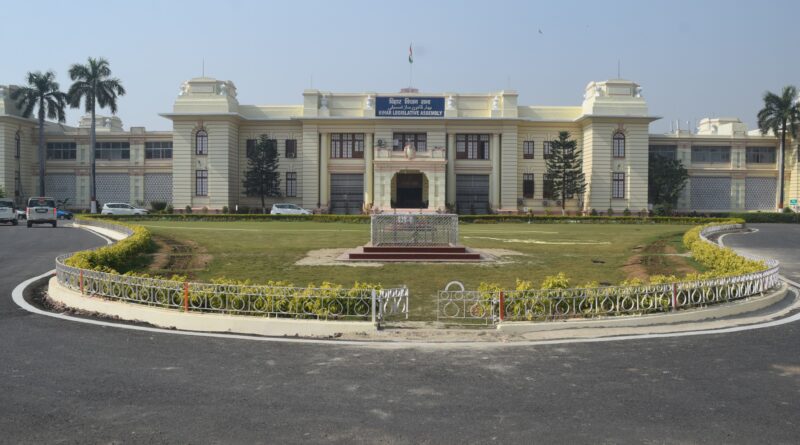Bihar’s Outgoing Assembly Under Fire: Record-Low Sittings and Hasty Lawmaking Mar Legacy Ahead of Polls
PRS report flags 146-day term with zero committee scrutiny on 78 Bills, as state gears up for November elections
PATNA, Oct 7: As Bihar hurtles toward its next electoral showdown on November 6 and 11, a damning analysis of the just-concluded 17th Legislative Assembly has laid bare a troubling pattern of legislative lethargy and rushed decision-making, painting a picture of an institution that prioritized speed over substance during its five-year stint from November 2020 to July 2025.
According to a fresh briefing from PRS Legislative Research, the assembly clocked a meager 146 sitting days across the term—the rock-bottom figure in its history—translating to just 29 days annually. This stark underperformance stands in sharp contrast to earlier terms; for instance, the 16th assembly managed 154 days, while the 15th scraped by with 174. On those rare active days, proceedings limped along for an average of three hours, well below the 2024 national benchmark of five hours across state legislatures, signaling a chronic shortfall in deliberative depth.
The report’s sharpest critique targets the assembly’s handling of legislation: All 78 Bills cleared during the period were rammed through on the very day of introduction, with not a single one dispatched to departmental committees for expert vetting—a glaring departure from best practices that could have fortified policies against flaws. Over the past quarter-century, this same-day sprint has become the norm in Bihar, eroding opportunities for bipartisan input and public consultation.
The bulk of these laws zeroed in on education (accounting for nearly a quarter), fiscal reforms, and governance tweaks. Standouts include the 2024 Bihar Public Examinations (Prevention of Unfair Means) Bill to curb exam malpractices, the Bihar Control of Crimes Bill for tougher policing, and the forward-looking 2025 Platform Based Gig Workers (Registration, Safety and Welfare) Bill aimed at safeguarding app-based laborers. Yet, the term wasn’t without judicial rebukes: Two ambitious 2023 measures hiking reservations in public jobs and education slots to 75% were swiftly invalidated by the Patna High Court in June 2024, underscoring the perils of undebated overhauls.
Executive overreach also drew flak, though in moderated form. The government resorted to just seven ordinances—interim edicts deployed during recesses—to bridge gaps, a far cry from the ordinance frenzy of yesteryears, like the 144 issued in the early 1990s. All were duly converted into full-fledged Acts within the mandated six-week window post-reassembly, averting lapses but still highlighting reliance on such stopgaps.
Budgetary oversight fared marginally better, with an average of 10 days devoted yearly to dissecting the annual financial plan, including nine days probing key departmental outlays. This, PRS notes, underscores a modicum of fiscal accountability amid broader inertia.
The findings, timed just weeks before voters head to the polls, amplify calls for reform from civil society watchdogs.




